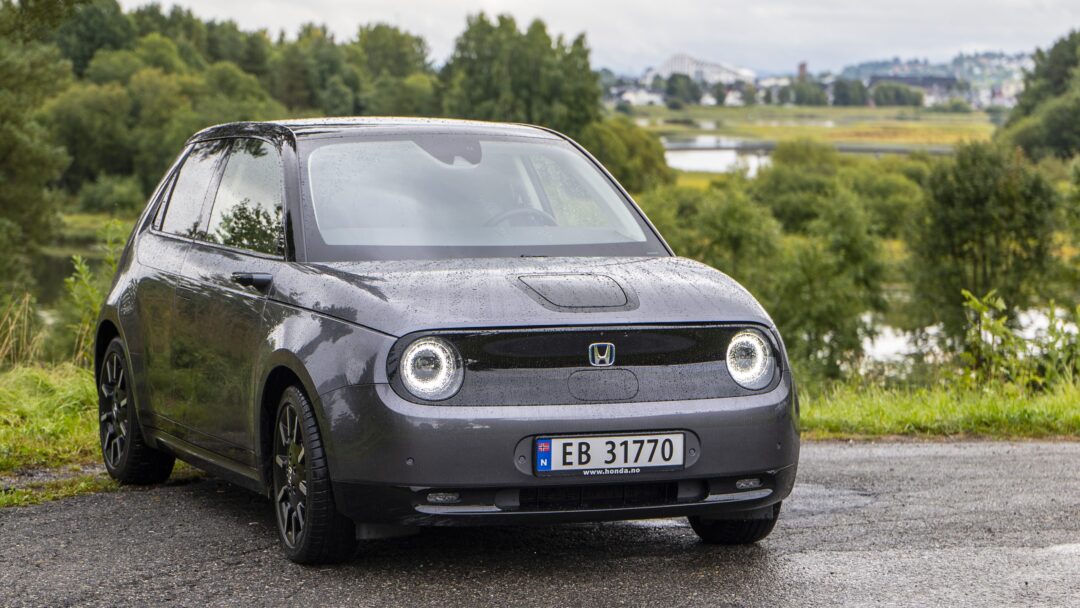When it comes to cars, electric cars are the closest you get to a “gadget on four wheels”. Which is also the reason why we have started writing about the topic. There is a lot of high technology inside, and the Honda e is a prime example in that respect.
I put my love on the car as soon as I saw it. The sleek, small exterior, with round lanterns that almost smiled at me. At the rear, turn signals and brake lights are one and the same, and at the front, the turn signals are in a circle around the driving lights. The front door handles pop out when the car is opened, much like on a Tesla, while the rear doors have the handles discreetly placed high up along the C-pillars. Eccentric, like the car itself.
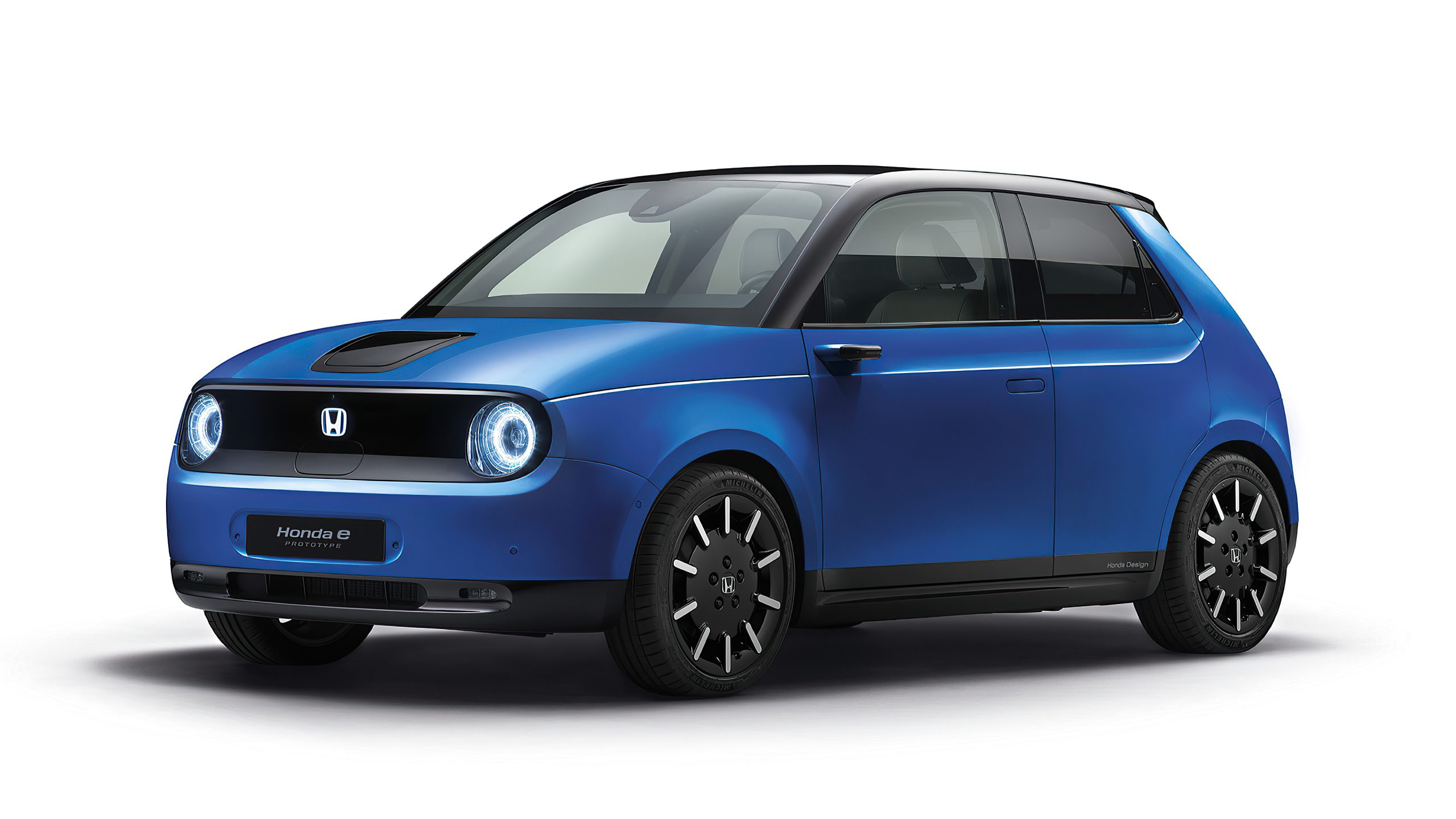
Cameras for side mirrors
It gets better inside. On each side of the dashboard is a slanted screen that shows what the side mirrors would show, if they existed. These have been replaced with camcorders. The image quality is not quite top class, with a slightly limited black level and resolution, but it lasts a lot to see what is going on in the traffic. Also with sunlight in through the side window. And it’s not just for shows either, because it has the nice bonus of having exactly the same overview of the cars behind, regardless of whether you push the seat forward or backward. If two people of different heights use the car, you do not have to adjust the mirrors every time after the driver. It also means that the passenger has exactly the same overview of traffic as the driver, and can thus be a better co-pilot.
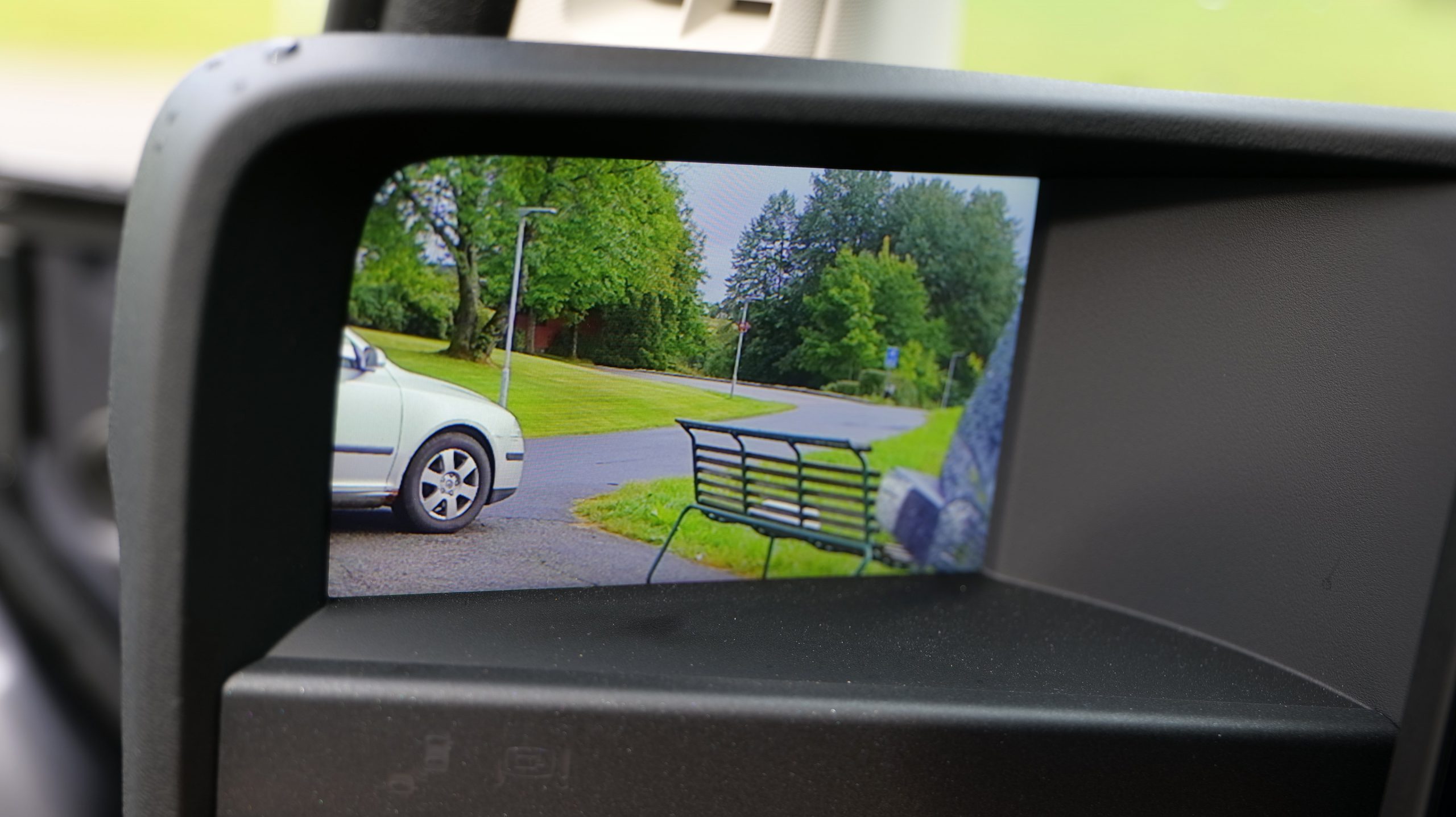
“Magic rearview mirror”
The rearview mirror can also be tilted up and turned into a screen, should you wish to keep the overview that way instead. If you have a bad time in the morning in the winter, and forgot to heat up the passenger compartment, you do not need to scrape the rear window for visibility, just set the mirror to screen mode. Or if you have loaded large items in the back seat that block the view to the rear. One would think that deep vision became a miss backwards, but I think that is not a problem. Worse is that I am farsighted, and when I have to switch my gaze between looking ahead and staring into the screen just above my head, the focus changes so dramatically that it can be a little tiring. Thus, I prefer the mirror variant, where the view to the rear requires approximately the same focus length as forwards.
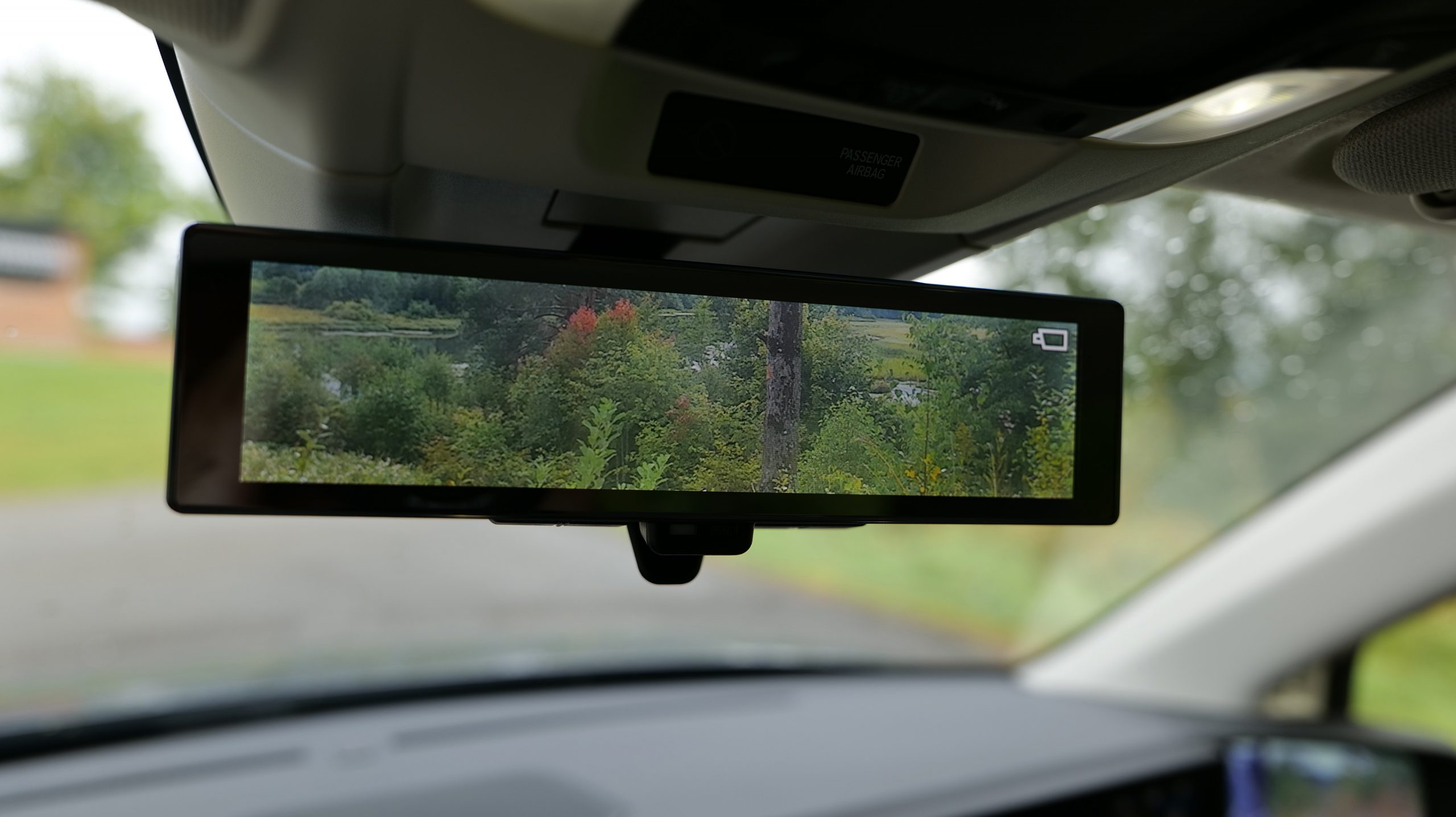
Digital dashbord
The entire dashboard is a long, digital display panel, divided into several sections. In front of the steering wheel is the usual information with speed, traffic assistants, battery indicator and other things you need as a driver. In the middle, you choose between functions such as radio, telephone, navigation and so on, with the corresponding screen according to the type of function you use. Far right are additional settings for Wi-Fi, Bluetooth, DAB radio, general settings and more. The passenger can control this, while the driver concentrates on driving.
Should you still want to do this yourself, for example if you are alone in the car, you do not need to lean all the way to the right side of the passenger compartment; just press a virtual screen change key on the screen to the right of the steering wheel and you switch between the center and right screens. Do what you want from settings and switch back.
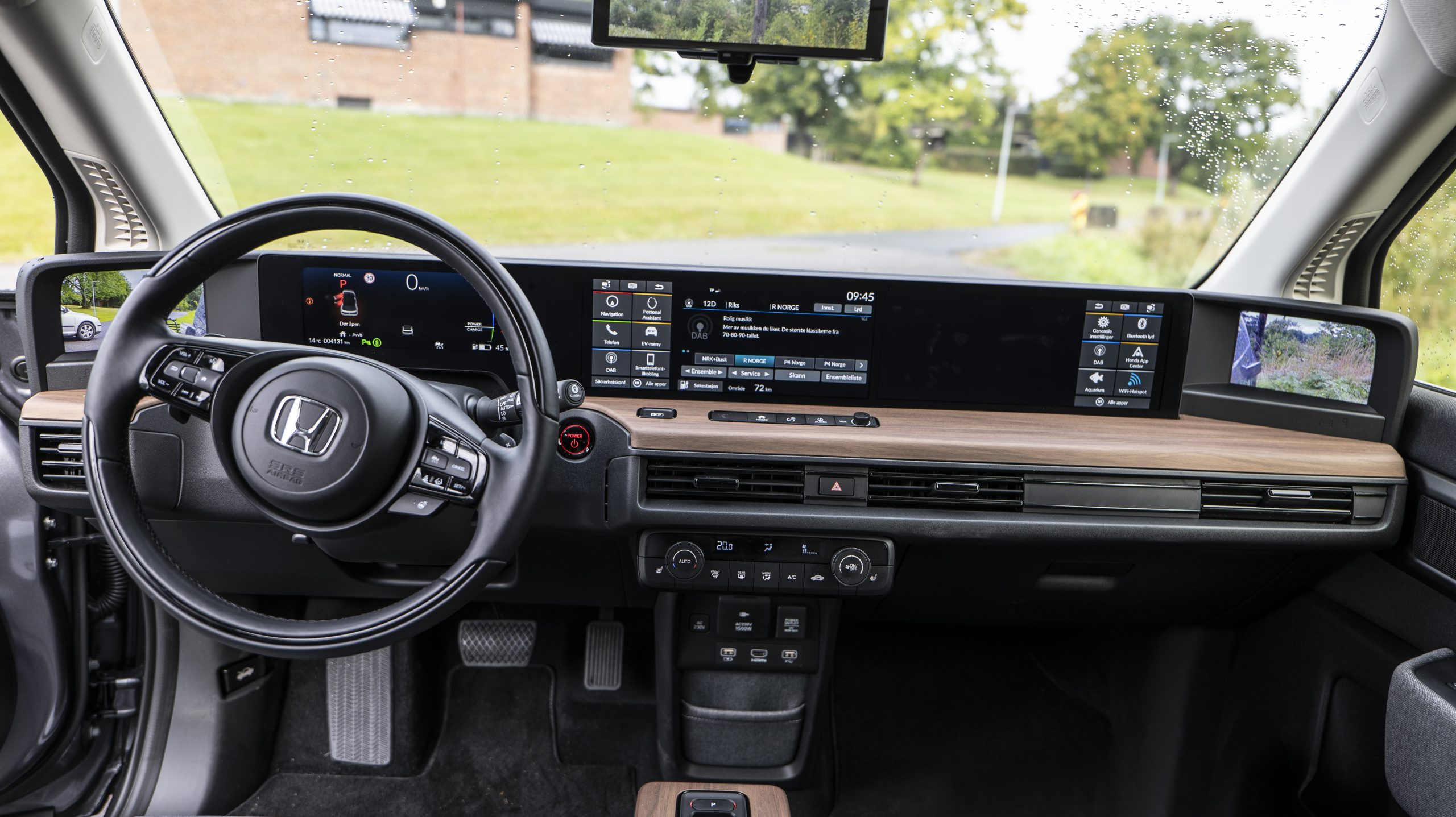
CarPlay and Android Auto
In addition to having built-in navigation, Honda e supports both Apple Carplay and Android Auto. You can use Carplay completely wirelessly by connecting your mobile phone to Bluetooth, while Android Auto requires that the phone is connected with a USB cable.
I have tried both and they both work painlessly. I must say that I prefer the wireless Carplay function, not least because I had to plug the USB cable in and out a couple of times before the digital handshake between phone and car worked.
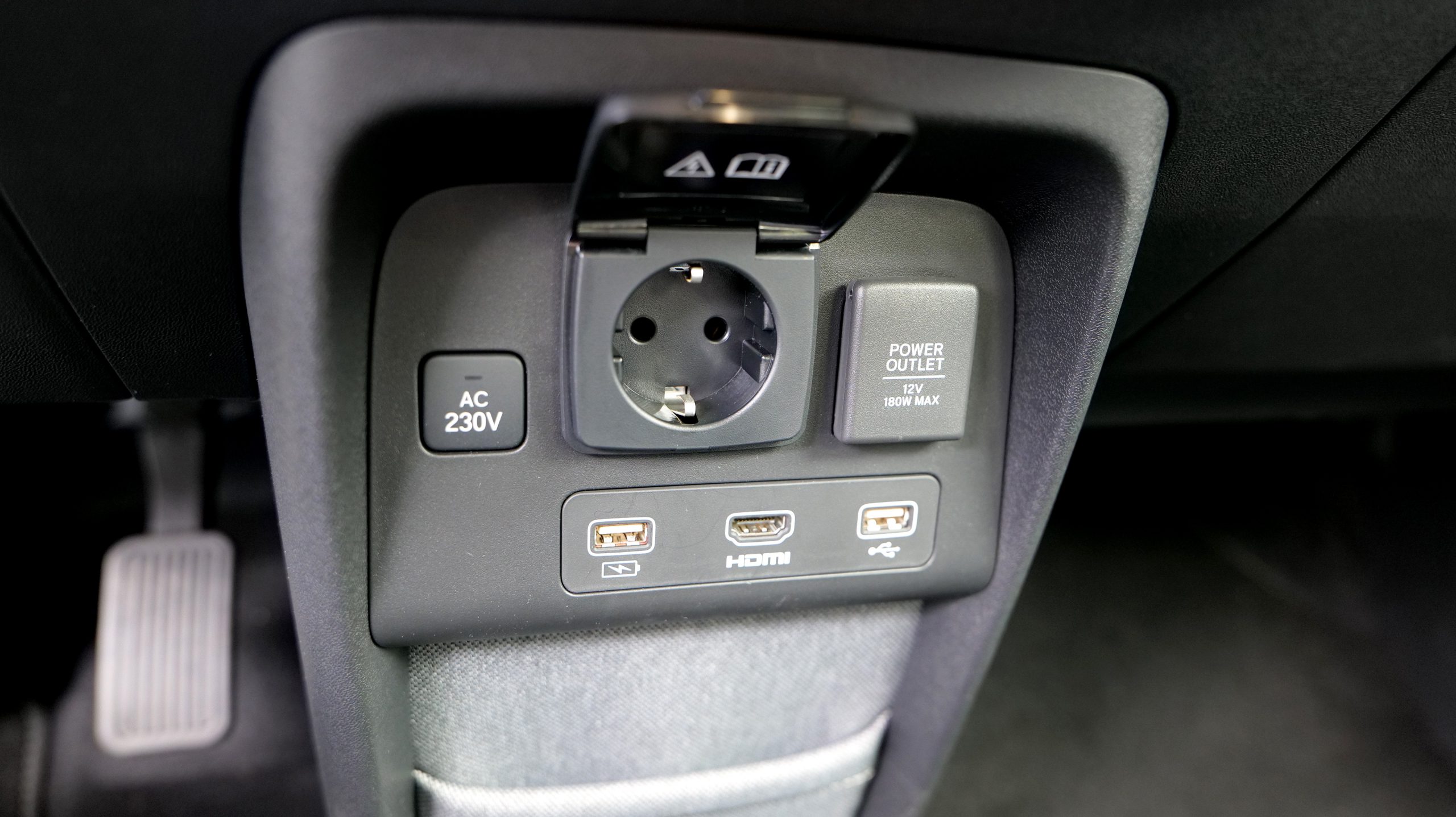
HDMI-input
The digital dashboard can of course also be used for entertainment. There is no Netflix app built-in, but in the Advance version there is an HDMI input under the air conditioner. Here is also a 230V power outlet, so you can, for example, connect a game console (!), And get the image on the screen and the sound through the speakers. Perfect waiting activity while charging the car!
Other features to note are parking assistant with 360 camera in addition to rear view camera, blind spot information and file holder assistant, adaptive cruise control and traffic sign recognition. Is it worth the barely 30,000 kroner extra? You can bet on that!
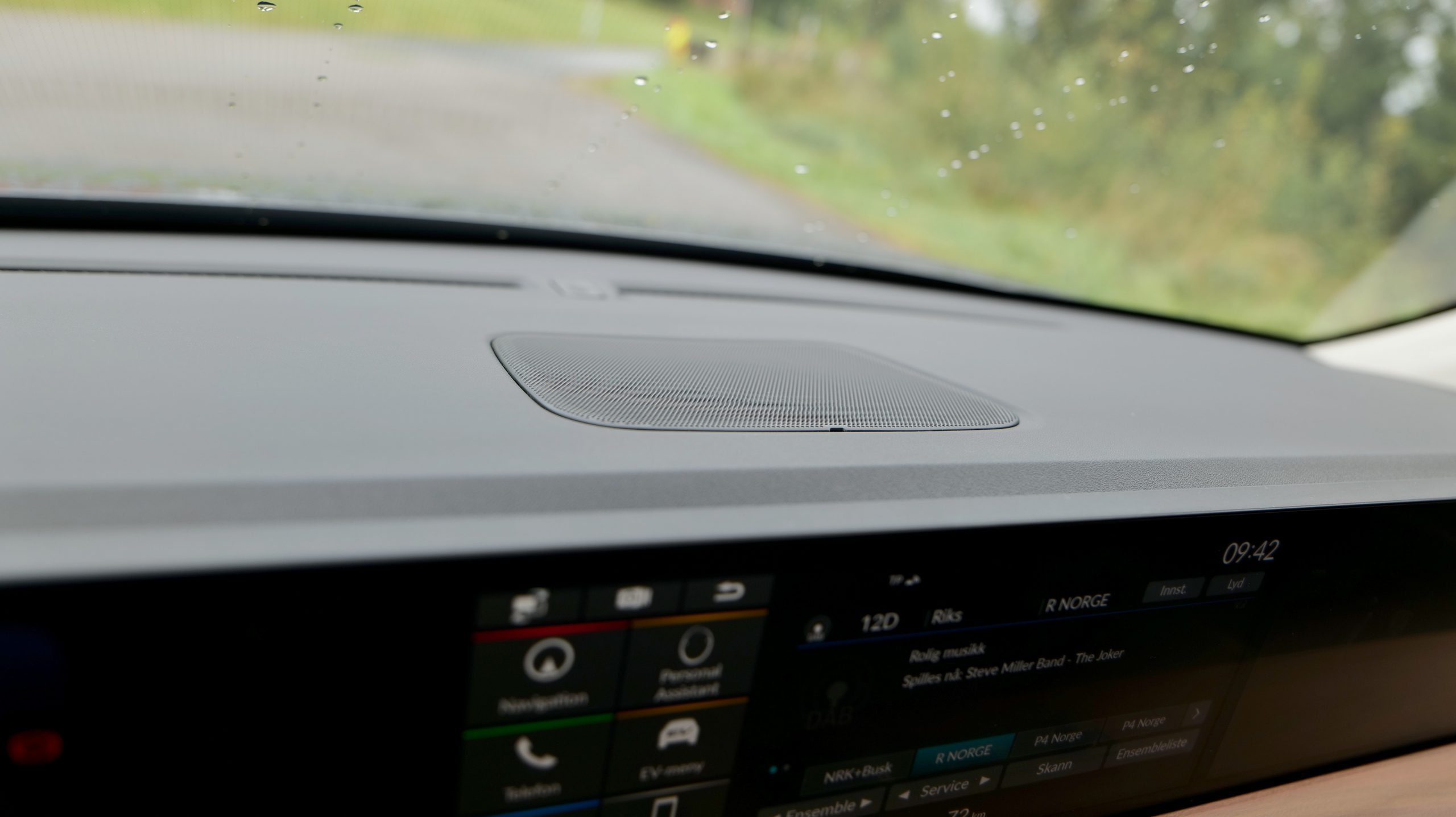
The sound system
The sound system in Honda e is not from any known third party such as Bose, Harman Kardon or Beats. It simply says Honda, whether you choose the standard version or the Advance version of the car. The difference is that the Advance system is more powerful and with more speakers. Here you get eight speaker elements in a surround configuration, with a center speaker at the top of the dashboard and also a 75 watt subwoofer under the back seat. 376 watts of total amplifier power is then also enough to fill the small cabin with sound.
The sound quality is good, with good speed over the rhythms and good clarity in the middle register. Singing voices stand out well, and the center speaker in the middle helps to draw a larger soundscape than you normally get with just sound on each side. It also lifts the sound in height, so that it feels more like the vocalist is hanging in the air in front of the windshield. And the cabin is pretty well cushioned. No annoying road noise even at 80 km / h.
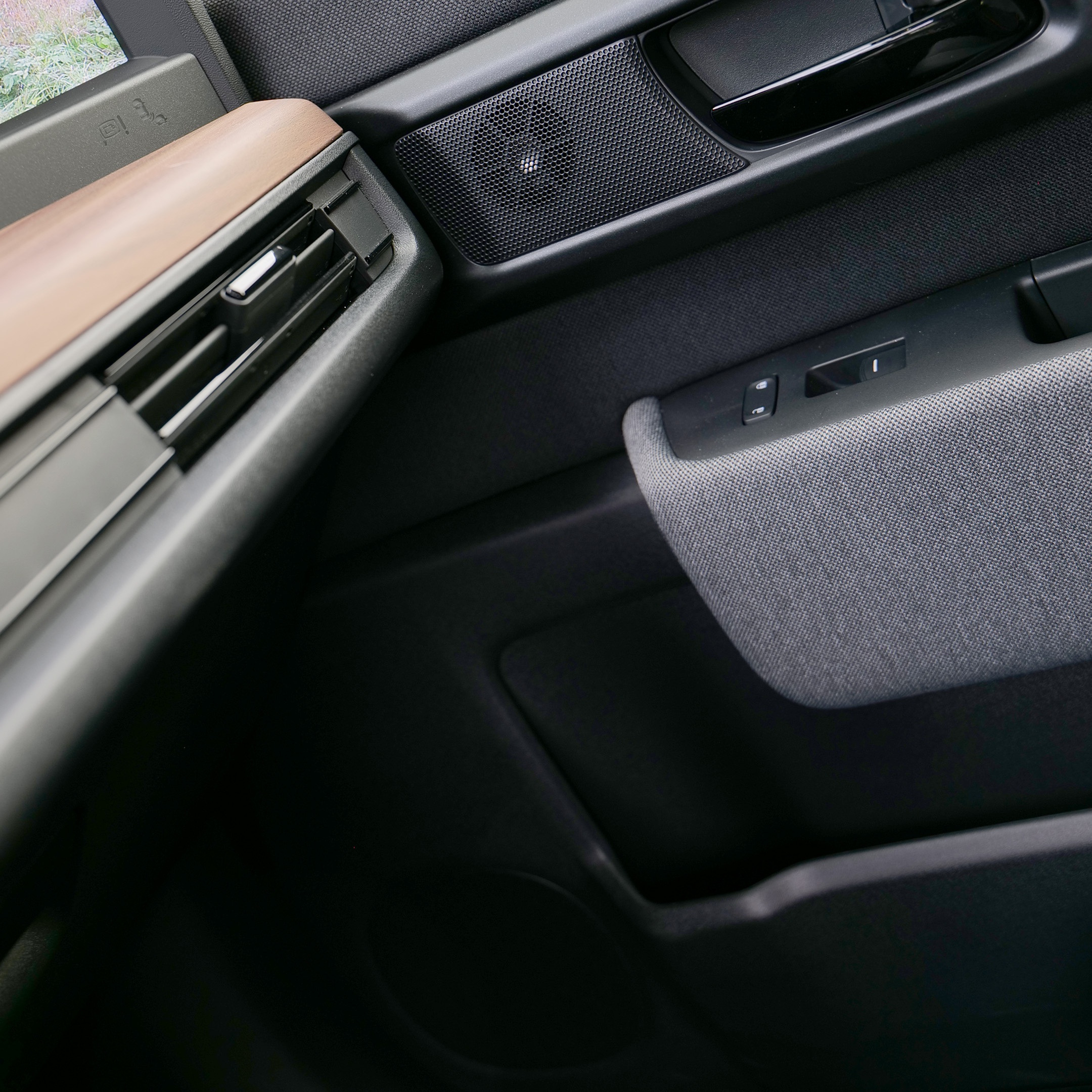
Lacking a bit against the best
The sound is finely meshed upwards in the harmonics, without Honda boasting the same level of detail as with the more expensive systems from Bang & Olufsen in the Audi e-tron and Mark Levinson in the Lexus UX 300e. But the Harman Kardon plant in the Mini Cooper SE is also better. It has more power and speed in its two subwoofers, and can play with a much higher sound level before it is short of breath. The Honda also slams in the doors when you play too loud with a lot of bass, in contrast to the Mini which sounds cleaner at high volume.
Amplifier
One thing: when I guffawed the party music very loudly, the amplifier suddenly went into protection mode. After half an hour of driving in total silence, I parked the car and turned it off, believing that the sound system would turn on again at start-up. It did not, until I had driven a few more minutes. In the downtime, the car was completely without music, and there was also no voice assistant to hear.
During the test period of just under a week, this only happened once, but after a bit of web surfing, it appears that several Honda owners have experienced this, mainly with the Civic of newer generations. So it could be a Honda thing. It should be said that I played very loud when this happened, but not so loud that there was a lot of audible distortion.
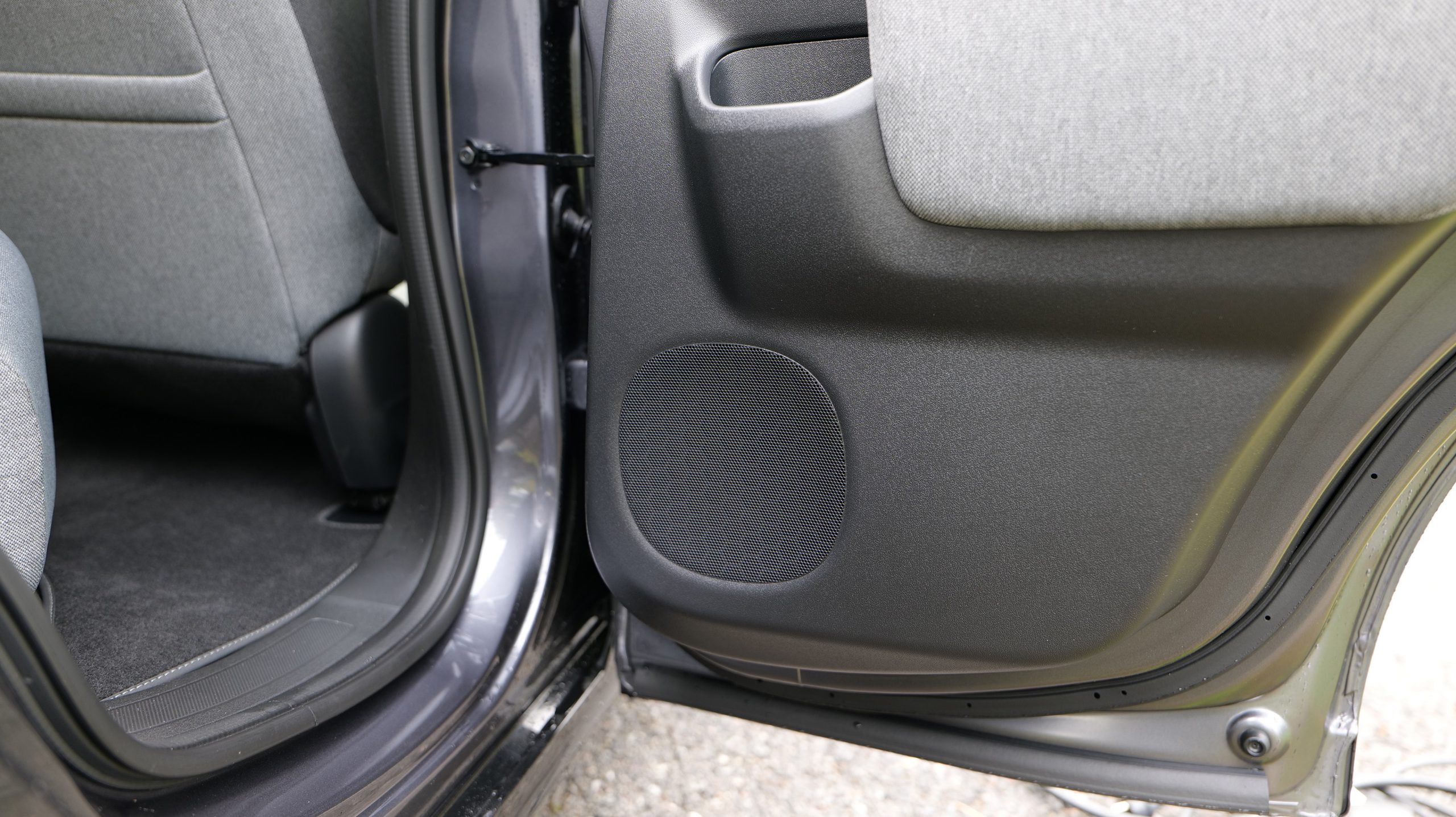
Honda e: a dream in traffic
In traffic, Honda e is a dream to drive. Firstly, it is far easier to maneuver a small car in heavy traffic than a large one, and the Honda e also has a turning radius of only 4.3 meters. That means it turns on the five-ring! Also in relation to the Mini Cooper SE with its radius of 5.4 meters. So here it’s just about taking the smallest pocket you see. When the car also has is so well equipped with aids, everything goes playfully easy.
You will be informed if objects are in the blind spot, and the car will not allow you to go out if the coast is not ready. Turn on the turn signal, and a cursor illustrating your own car length appears on the “side mirror”. This makes it easy to see if you actually have a hatch to lay out or not. If you are in heavy traffic and wonder if you have enough distance to the car in front to lay out, and for some reason you do not trust enough sound and light in the instrument panel, you can with a keystroke get a full overview with 360- the camera. This is addictive and it is difficult to return to a less well equipped car afterwards.
You get used to cameras for side mirrors after two minutes, and for my part I must say there are only advantages with them versus exterior mirrors. Both in terms of dirt, dung and frost, but also the fact that the view is the same no matter how you sit in the cabin is a great advantage. Also, in a dark tunnel with sharp traffic lights from cars behind, you actually see better. The light does not dazzle for the rest of the view.
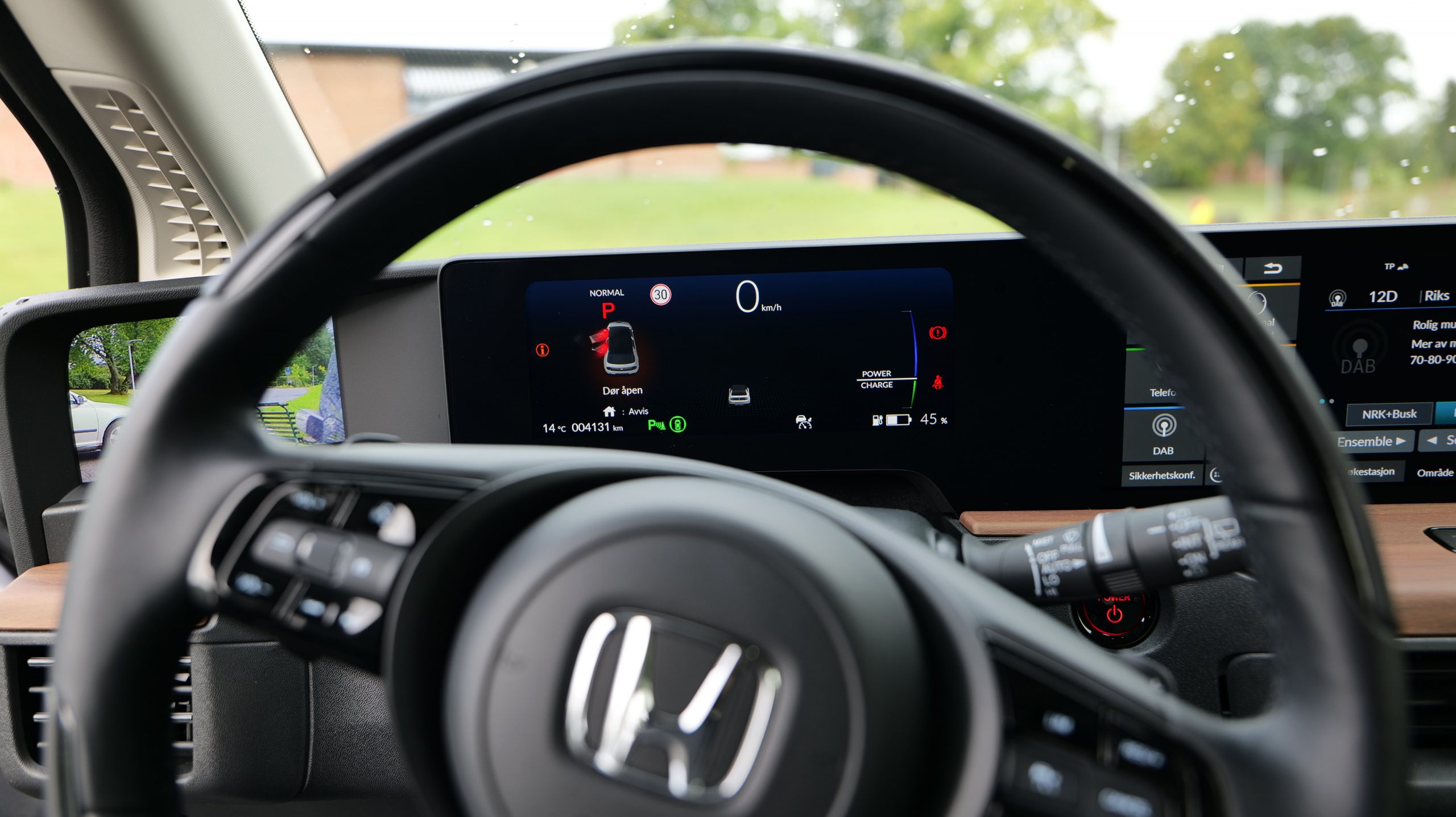
Small but feels big
With my 186 cm, there are several cars where the cabin feels small and cramped. But the Honda provides more than enough legroom, and feels no less than neither the Nissan Leaf nor the Scoda Octavia I drive on a daily basis. There is plenty of room for two tall, adult people in front.
The back seat is necessarily something quite different. This is not for adults, nor can you get a rear-facing child seat without compromising too much on the space in front. This is thus a second car, or one for childless. Who also does not plan to have anything special in the trunk.
It is also not a car for people who have to drive long distances, with just over 200 km on the battery on a normally hot day and without many uphills at high speed. And with only 50 kW fast charging, you do not want too many stops on the journey.
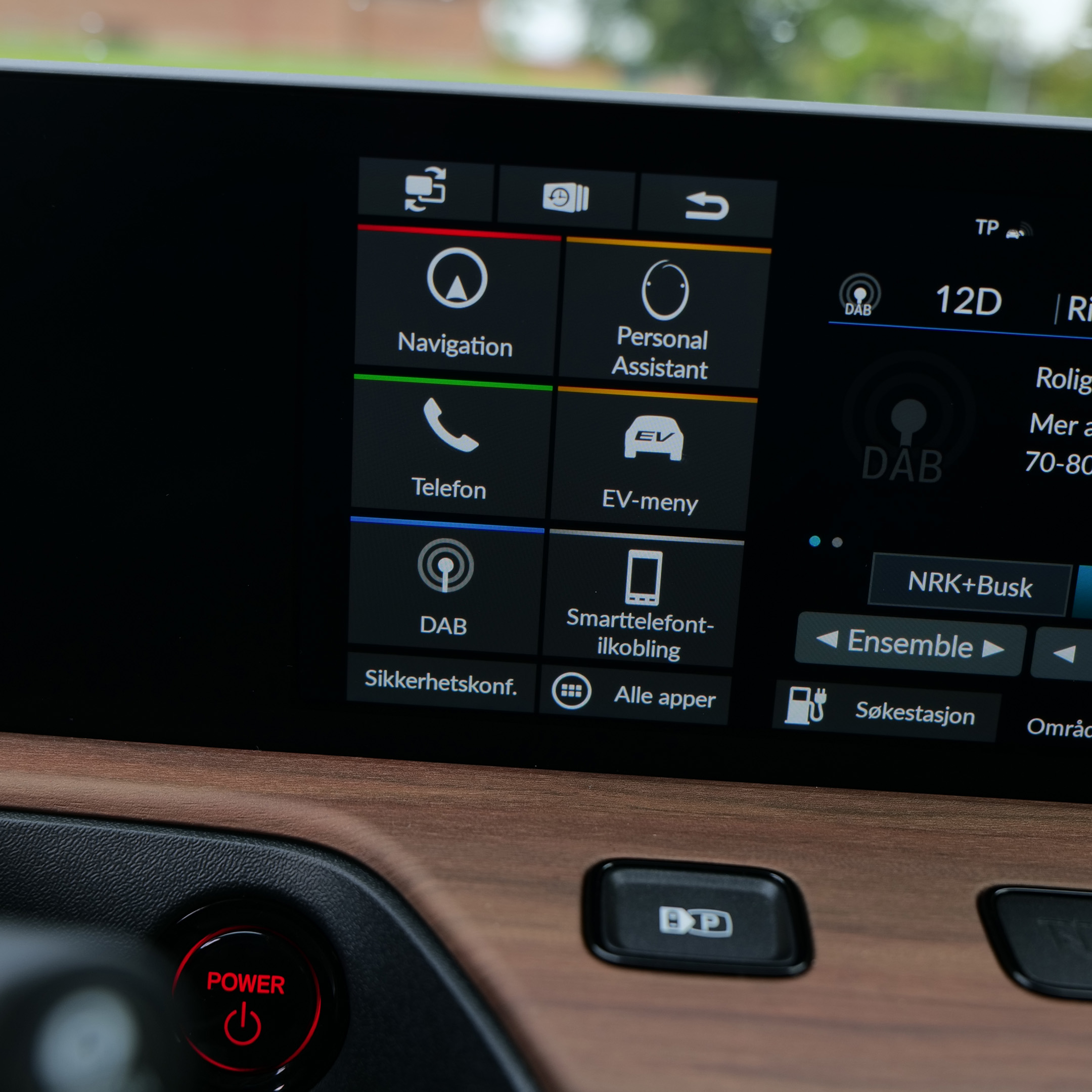
Torque delay
Since the Honda e is an electric car, it obviously has good acceleration from a standstill to 50-60 kilometers per hour. But it is not as immediate as other cars I have tried, due to a fairly built-in torque delay. Squeeze the accelerator pedal, and the car rolls slowly for about a second, before it suddenly comes as a small ball. Keep that in mind when standing in a roundabout in heavy traffic, thinking that the small hatch from the left seems large enough.
The Mini Cooper SE, by comparison, feels quite a bit more agile, because it is far more instantaneous from the moment you press the pedal. Its 184 HP is not much more than Honda’s just over 150 HP, but it responds much more immediately.
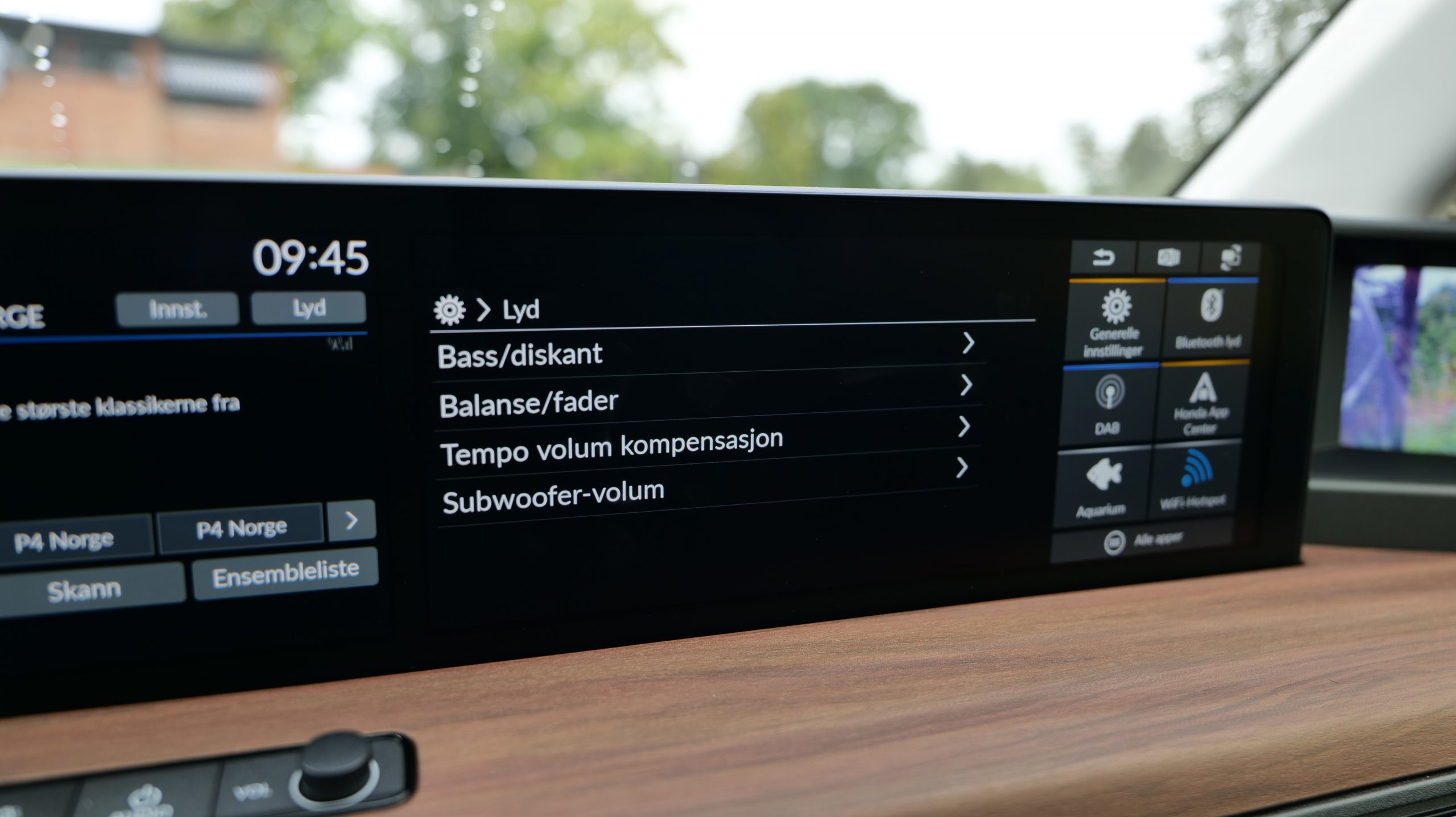
Conclusion
This is not the story of the car with the longest range or largest space. Seen with Sound & Vision eyes, it is also not the car with the most well-sounding sound system. In the category “Sound in a car”, Honda is quite accurate in the middle of the tree. But this little cart is so much more. It is a technology festival on four wheels, which suddenly takes us a step further into the future of what a car can be.
The most obvious is that the side mirrors have been replaced with cameras, which actually provide a better overview in traffic. You can also turn the rearview mirror into a screen with a camera, but I feel this will be more of an emergency solution if the mirror is blocked. But it’s cool, definitely! The car is also packed with driving assistants and touch screens, which take much less time to get used to than you would think, and which provide an optimal overview when driving.
The overall experience of the Honda e is very enjoyable, and with the accessories that come with the Advance edition, there is no doubt that you should choose it over the standard. If you can live without the “go-kart feeling” in the Mini Cooper SE, the Honda e is very possibly the best small car on the market today.
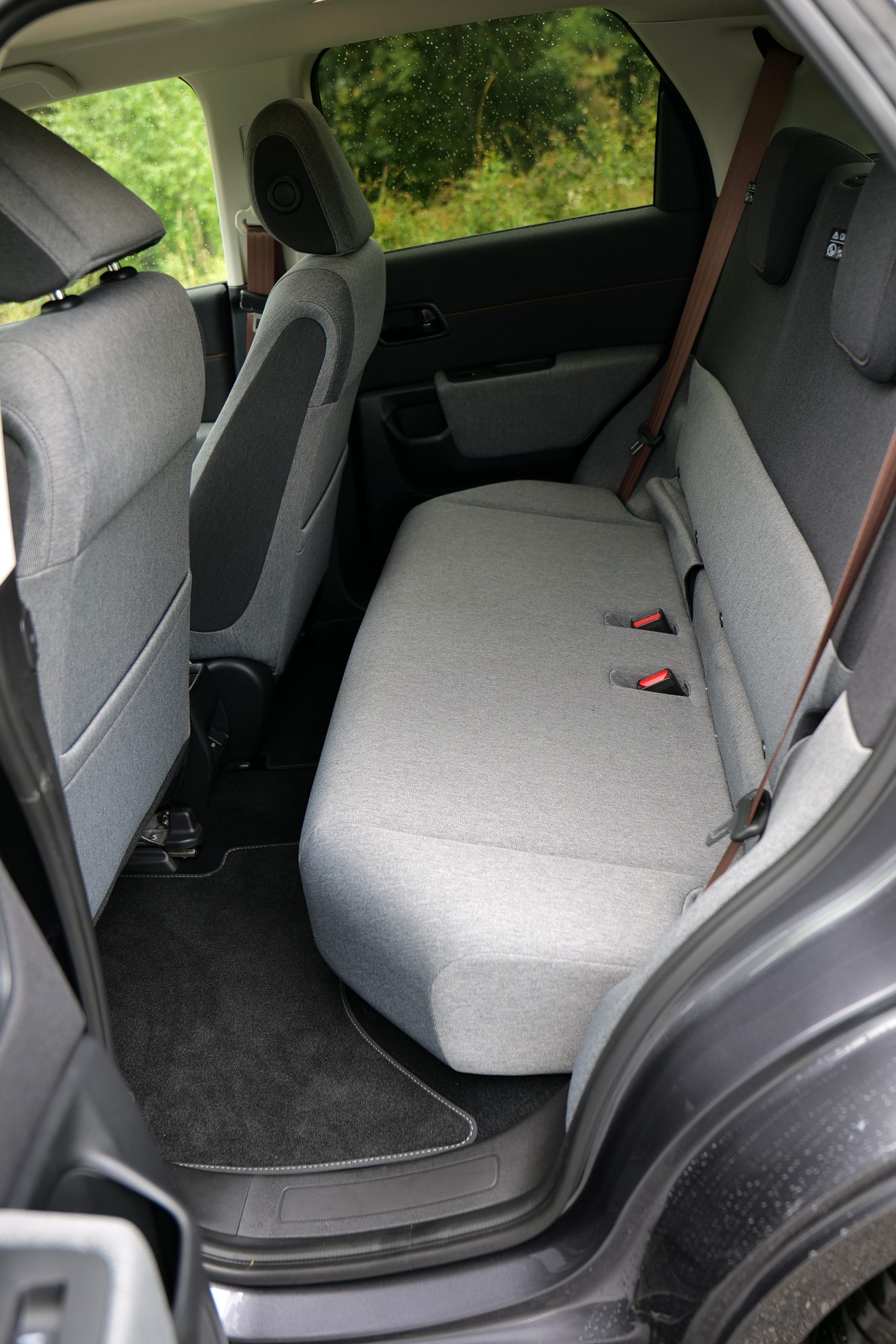
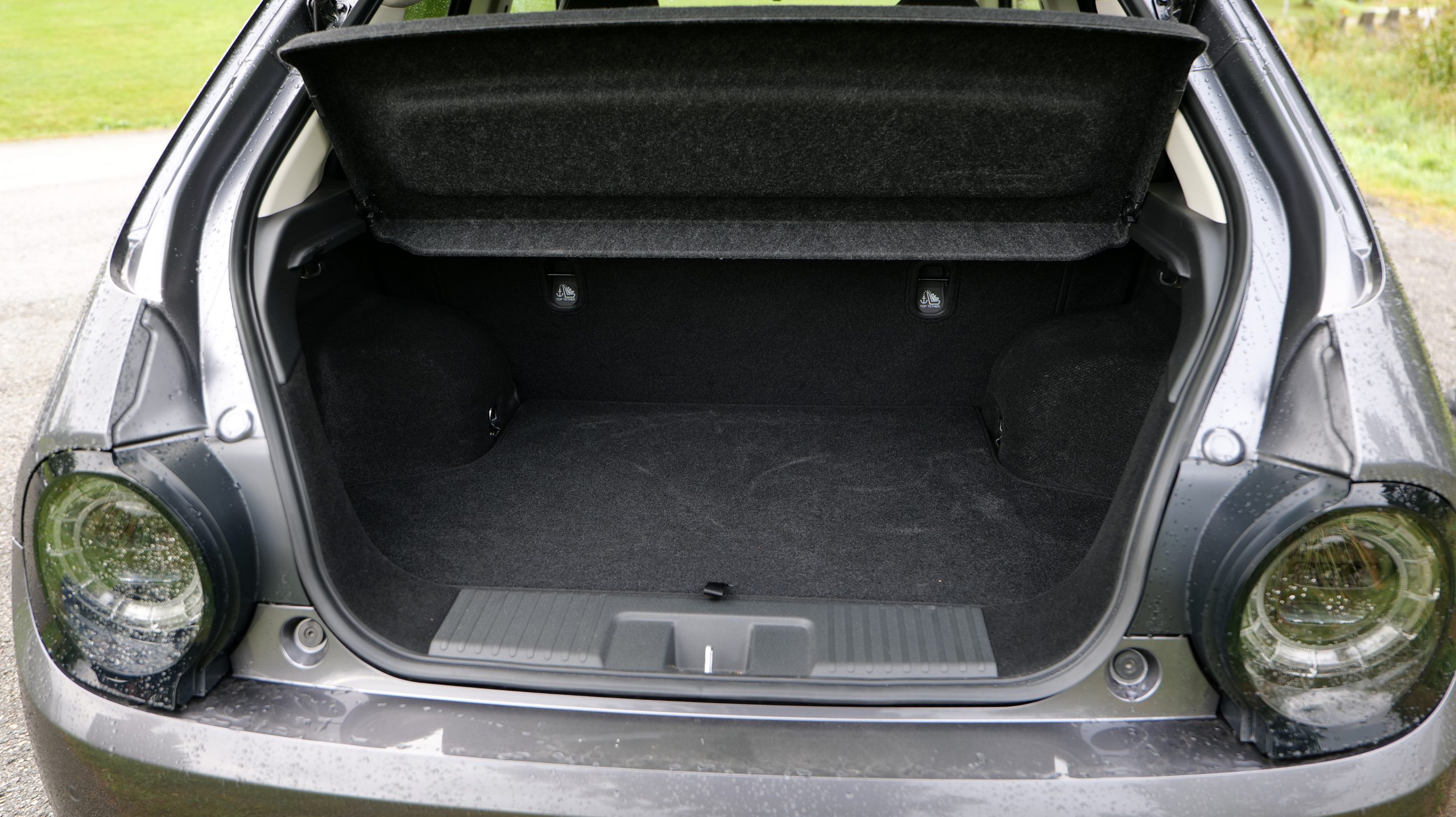
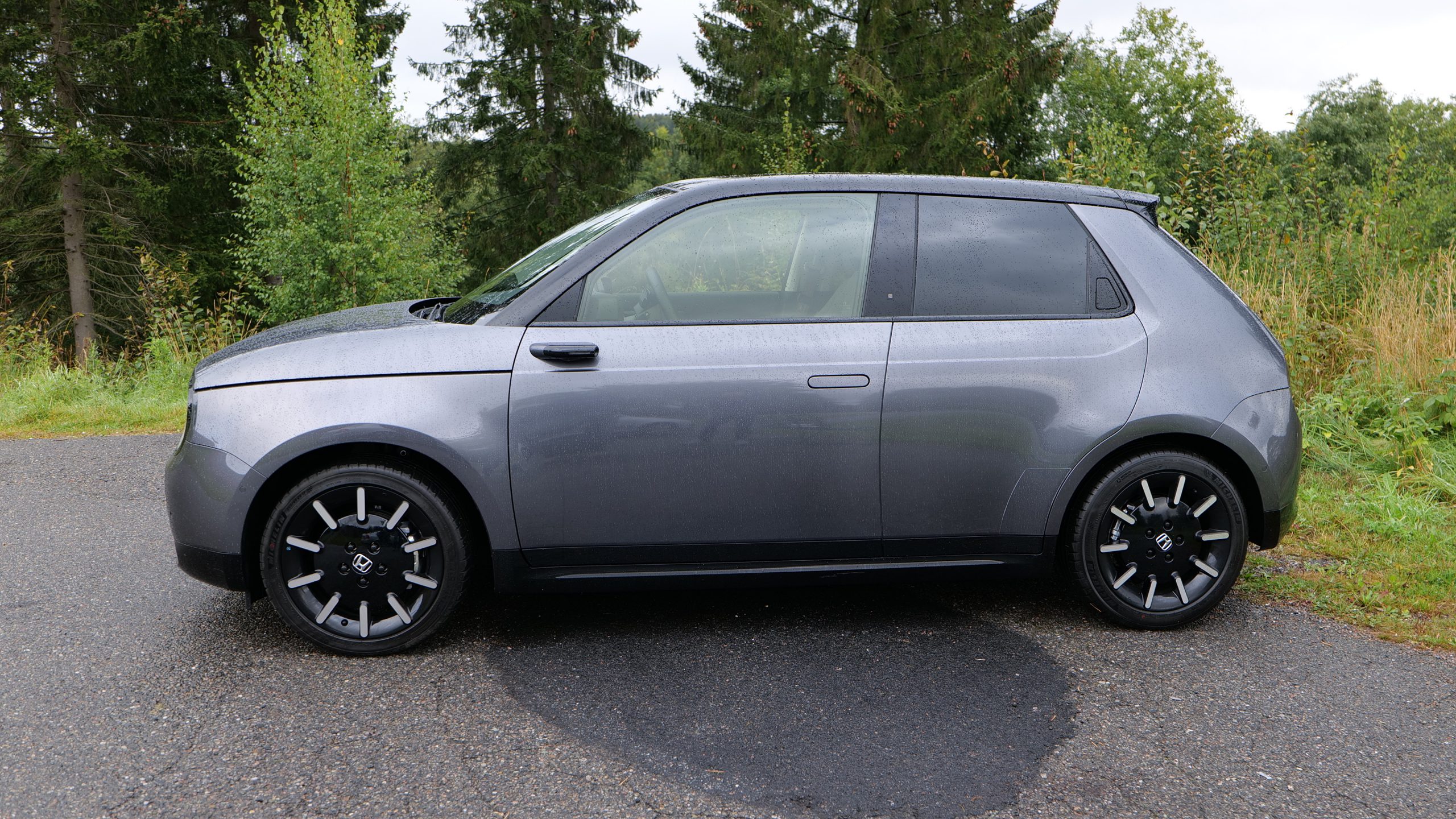
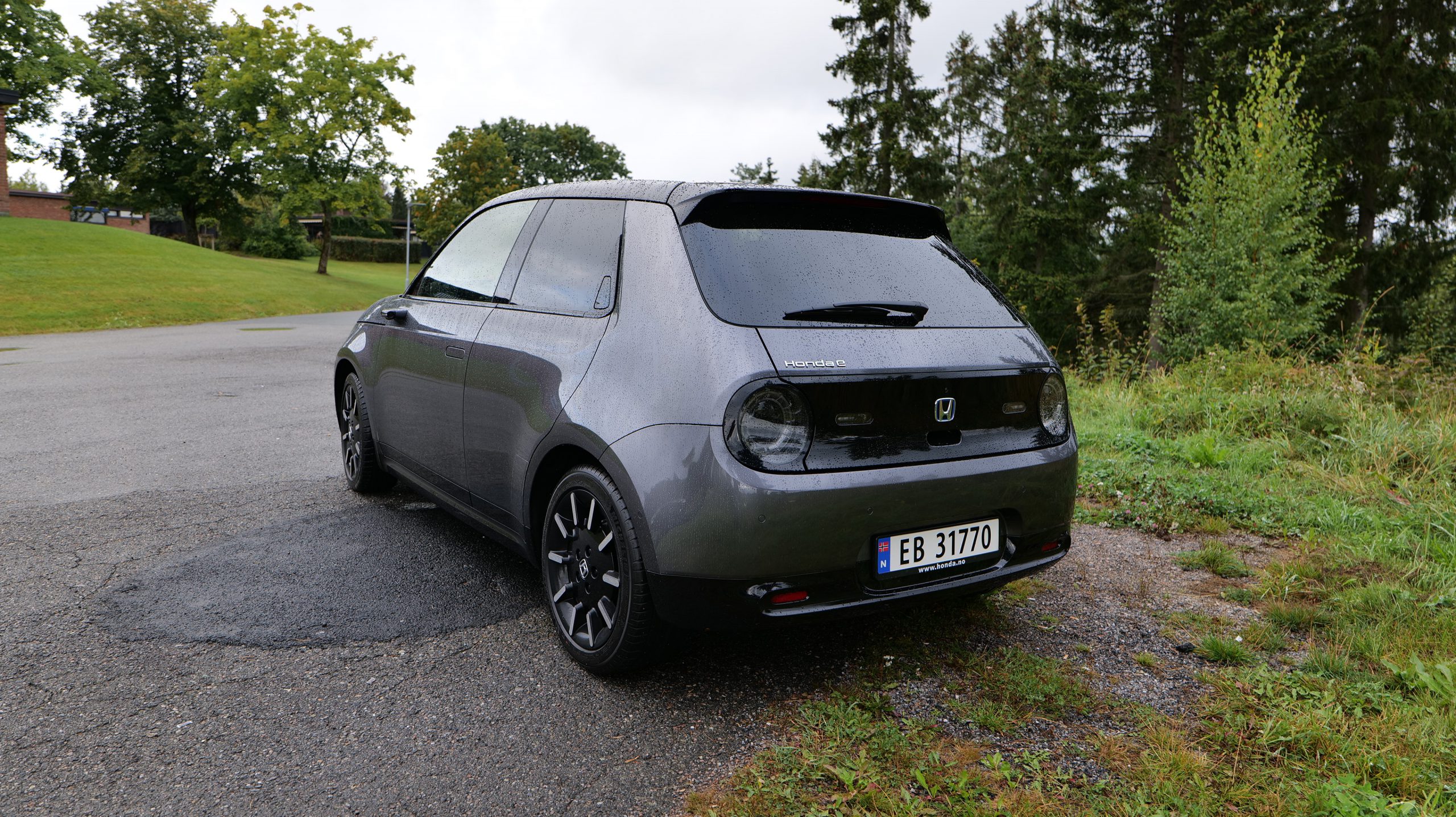
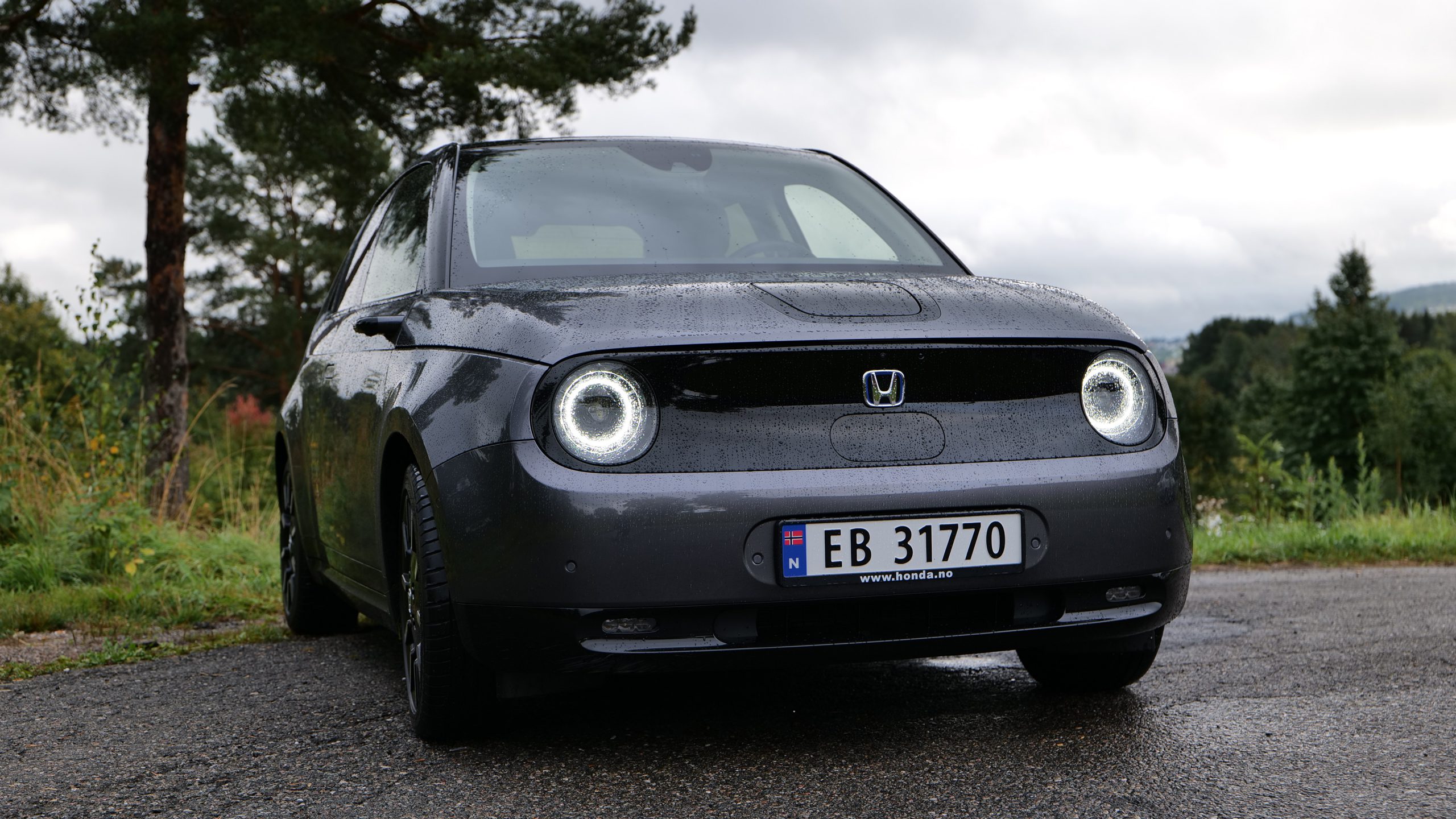

We think
Packed with technology, which does not get in the way of safety or driving experience. On the contrary! Turns the five-ring, and slips into all the hatches. The premium sound system could have been even better, and the range impresses no one (but for the car's urban purpose, you do not need more). The acceleration is modest for the electric car to be.
29490 €
Specifications
- Equipment package: Advance
- Range: 220 km (WLTP)
- Battery capacity: 32 kWt
- Charging capacity: 50 kW
- Power: 113 kW / 152 HP
- 0-100 km / h: 9.5 s
- Net weight: 1525 kg (incl. Driver / payload)
- Number of speaker elements: 8
- Amplifier: 376 watt class D
- Speaker setup: 7.1
- Other: My Honda + app
- Web: honda.com
